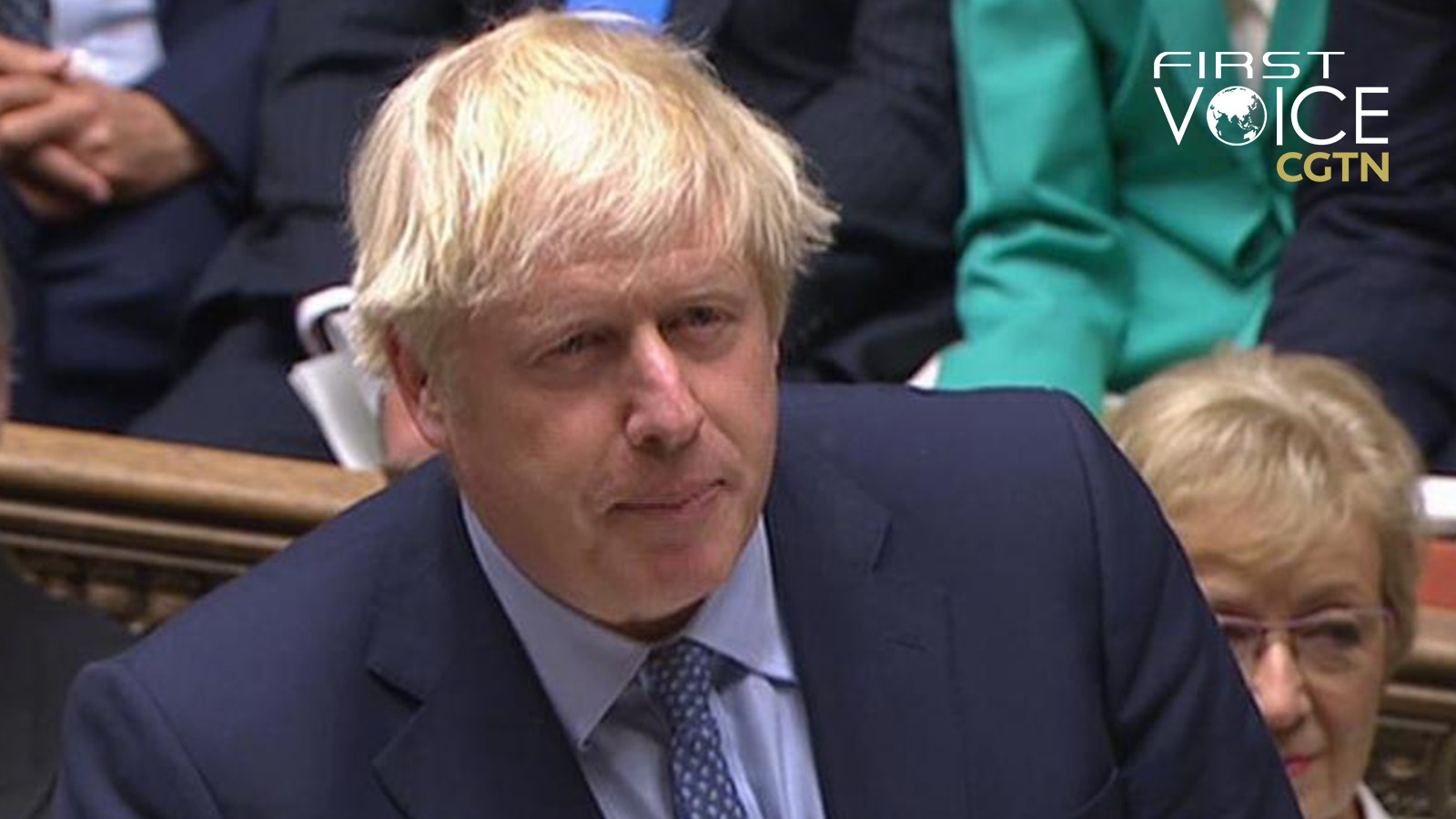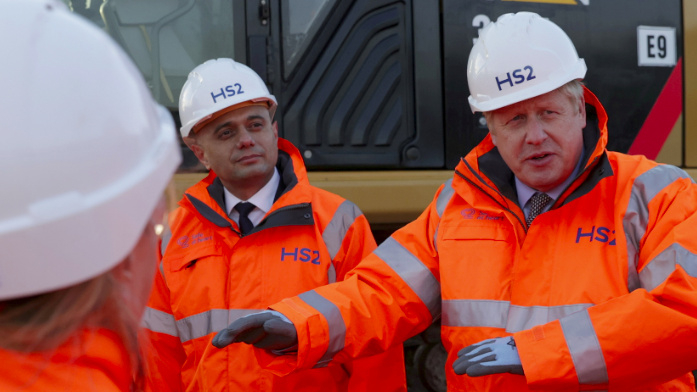
British Prime Minister Boris Johnson speaks in UK Parliament in London, England, on September 25, 2019. /Xinhua
British Prime Minister Boris Johnson speaks in UK Parliament in London, England, on September 25, 2019. /Xinhua
Editor’s note: CGTN's First Voice provides instant commentary on breaking stories. The daily column clarifies emerging issues and better defines the news agenda, offering a Chinese perspective on the latest global events.
British Prime Minister Boris Johnson expressed his sympathy and support to Chinese President Xi Jinping for those affected by the COVID-19 outbreak in a phone call on Tuesday, and he later reiterated it on his twitter. Johnson's message is good for both sides, and showed a good example for others to follow.
As the saying goes, "a friend in need is a friend indeed." This sets an example of how two great countries can and should cooperate in a time when both need each other's support.
After Johnson became prime minister, it was Brexit that captured most headlines. Few doubt that, although he finally led Britain out of the European Union, the future condition of the nation remains uncertain. But, in such hard times, he put others' need before his own, and sought for win-win solutions.
When China's telecommunications company Huawei met with obstacles in many nations in North America and Europe, Johnson's UK gives it a green light to be part of its 5G market. He knows that both countries would benefit from the deal hugely.
It also showed that he has great courage in doing so. In fact, his support to China's fight against the virus came just one day after some British newspapers reported that the U.S. President Donald Trump warned that the U.S. could stop intelligence sharing with nations that use China's Huawei.
Nevertheless, when the UK's HS2 high-speed rail construction was in crisis, a Chinese company, the China Railway Construction Corporation (CRCC), proposed a partnership which was confirmed by Johnson in parliament last week.
The year 2020 begins in Britain with the uncertainty of Brexit, and it begins in China with the outbreak of the COVID-19. By cooperating intensively, both sides will benefit from each other a lot when this year ends and for the years to come in the future.

British Prime Minister Boris Johnson gives the go-ahead to the construction of the HS2 in London, February 11, 2020. /AFP
British Prime Minister Boris Johnson gives the go-ahead to the construction of the HS2 in London, February 11, 2020. /AFP
Many criticized Johnson's Brexit as a sign of unilateral behavior, but he clarified in the phone call with President Xi that it is better to embrace multilateralism and he firmly supports the Belt and Road Initiative (BRI).
Moreover, it is also better to stand up against the nations and the polities who try to bully others. Johnson had that thought naturally, because unlike many of his Brexit supporters in the 21st century, his Brexit idea dated back to the very beginning when he was only a young journalist. On May 3, 1992, as he felt that the European power in Brussels was trying to bully UK, he expressed his concerns in his later well-known front-page headline article "Delors plan to rule Europe" in the Sunday Telegraph.
Nor had he wanted to be bullied by the U.S., which had a special relationship with the UK. In fact, he even made some thoughts that Britain should not go too close with the Americans in his novel "The Seventy Two Virgins" published in 2004. In one of the chapters, he showed a disdain on the excessive U.S. presidential power in a sarcastic way, "So huge, in fact, was the U.S. Secret Service men's requirement for bandwidth that yesterday, at Windsor, they had disabled Her Majesty's TV aerial, and she had been unable to watch Channel Four racing."
Does diplomacy matter? Some say it is no more than leaders from countries shaking hands or dialing phone calls, but that truly is not the case. As senior vice president of the American think-tank Council on Foreign Relations (CFR) James M. Lindsay mentioned this Monday, that 48 years ago this week, was "the week that changed history", during which the former U.S. President Richard Nixon was making his historic trip to China.
Fast-forward to the ongoing COVID-19 outbreak today, Boris Johnson could be that historic man who has shown support to China in hard times, and so could many other world leaders that may follow.
Script writer: Xiong Tong
(If you want to contribute and have specific expertise, please contact us at opinions@cgtn.com)